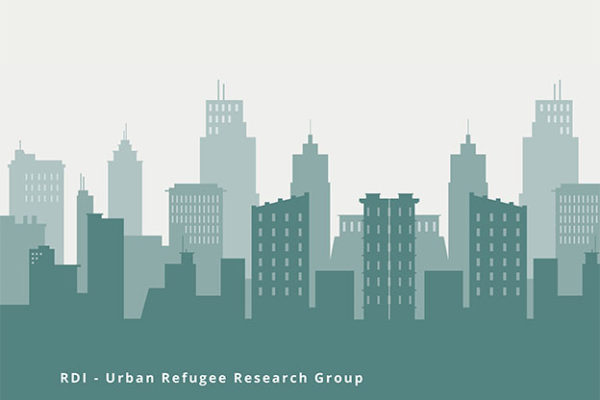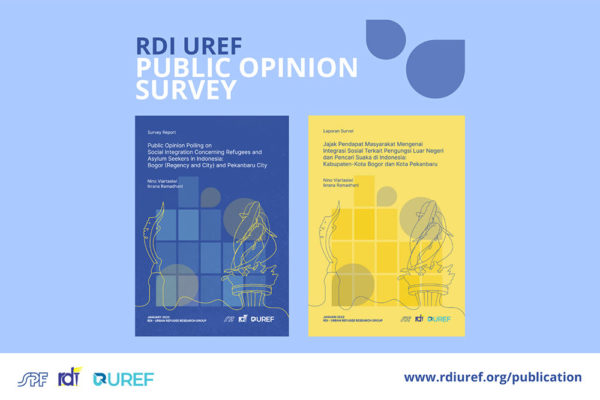Advancing knowledge on social integration of refugees in transitory context
Background
The influx of refugees is becoming a global issue. One in every 113 people is now either an asylum seeker, internally displaced person, or a refugee escaping conflict, violence, or human rights violations (UNHCR, 2015). Indonesia, a non-signatory country to the 1951 Refugee Convention or its 1967 Protocol, is also experiencing a rising number of refugees from Afghanistan, Myanmar, Sri Lanka, and others transiting in its urban areas (UNHCR Indonesia, 2016). On average, refugees spend more than three years in the country while waiting for their settlement application outcome repatriated to a third country or returned to their origin country. However, the extended waiting period lacks structured programs to bridge the interaction between refugees and locals.
This third-year research builds from our research in the last 2 years: on placemaking for social integration in 2019 and refugee stakeholder management in Indonesian cities in 2020. The idea was developed based on the umbrella mission of RDI-UREF research, which is to explore the role of cities in welcoming refugees under a limited regulation framework in Indonesia as a transit country. The role of cities may include that of the government institution, non-government institution, and local communities. We also learn from the practices of cities in other transit countries, mainly in Southeast Asia.
The research project in 2021 aims to advance our understanding of the social integration of refugees and host communities in a transitory context. There are two specific objectives:
- Advance our knowledge on placemaking for social integration in the context of forced displacement by further reviewing the use of the methodology in other countries. Key questions are:
- How do the practice and recent development of the methodology on placemaking or place-based approach for social integration in forced displacement context look like?
- Is there any difference in the use of placemaking methodology in destination and in transit countries?
- Survey (polling) to portray Indonesian public readiness for refugees’ social integration. UNHCR Indonesia is seeking the government’s permit to allow refugees access to opportunities for self-reliance through education, skills development, and income-generating activities. The survey will explore the main questions as follows.
- How does the public in the selected cities percept and understand the general migration trend and forced migration?
- What is the public in the selected cities’ opinion toward refugees in their cities?
- What is the public in the selected cities’ opinion, if refugees and asylum seekers are given access to livelihood (work, education, and healthcare)?
- What is the public in the selected cities’ opinion if the refugees and asylum are given opportunities to involve in creating shared space for all residents in the city?
Methodology
Although the pandemic situation is not over, Indonesia started to slowly introduce ease of restriction in certain periods and cities. We expected the ease of restriction will happen more often in the next 6 to 12 months. Therefore, our activities for this year are designed to be a hybrid mode, with some activities being online and some others will make use of the RDI network in the study location or employing local hiring for field surveys.







